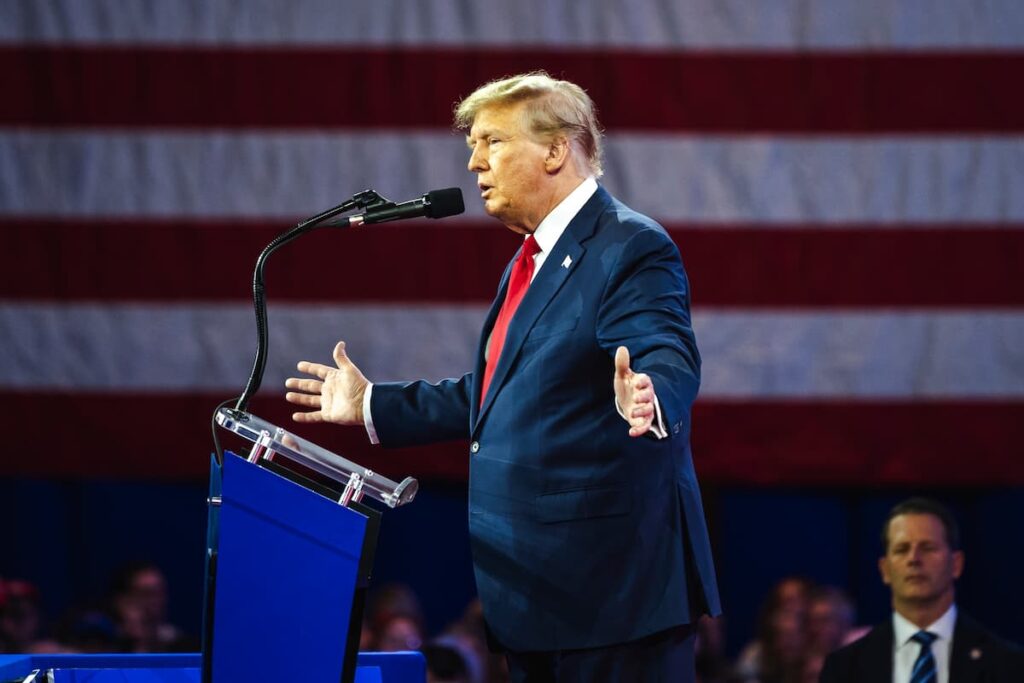Global Growth Slows Amid Rising Trade Tensions
Global economic momentum is projected to slow down significantly, according to a major international policy group. Growth worldwide is now expected to reach only modest levels, as a surge in trade barriers—largely tied to the renewed tariff strategy of U.S. President Donald Trump—casts a shadow over the economic outlook for nearly all regions.
The Organization for Economic Co-operation and Development (OECD) now expects global growth to fall short of previous forecasts. The main factor driving this decline is the escalation of tariffs, particularly from the United States, which has impacted international trade flows and disrupted market confidence. The organization noted that the economic repercussions will be broad and felt across almost every country.
Despite declarations of economic strength from U.S. leadership, official data reflects a less optimistic picture. The U.S. economy recently contracted for the first time in years, contradicting claims of economic expansion and highlighting the consequences of the current trade strategy. This has raised concerns over the long-term impact on jobs, investment, and consumer sentiment.
United States Faces Reduced Growth and Inflation Risks
The outlook for the U.S. economy has been sharply downgraded. The OECD has significantly lowered its expectations for the country’s growth this year, warning that the effects of aggressive tariff policies are beginning to show. Growth is now anticipated to be far below earlier estimates, and further deceleration is likely in the near future.
Beyond the reduced pace of growth, the U.S. faces rising inflation pressures. Despite campaign promises of price stability, inflation remains a persistent threat, amplified by trade uncertainties and fluctuating production costs. The combination of reduced economic activity and inflation has created a complex scenario for policymakers and businesses alike.
The unpredictable implementation of tariffs has led to uncertainty, undermining investor confidence and slowing job creation. While the intention behind the tariffs may be to protect domestic industries, the broader economic consequences suggest a net negative impact in the current global landscape.
UK Economy Slows as Domestic Challenges Mount
The UK is not exempt from the global cooling of economic activity. While recent performance showed a brief period of growth, the OECD has revised its projections for the country downward. Current estimates reflect a reduced rate of expansion, influenced by trade-related tensions and rising uncertainty in both domestic and international markets.
Aside from external pressures, the UK faces internal fiscal concerns. The country is managing substantial government debt and a limited financial buffer. These challenges are compounded by interest payments that are weighing heavily on public finances. The situation has led to difficult policy decisions, including recent cuts in welfare spending and tighter fiscal rules.
Economic sentiment in the UK is also on the decline, with businesses expressing lower confidence in the short-term outlook. The OECD attributes this to an erosion of momentum and a deteriorating economic climate, which may require strategic adjustments from leadership to sustain stability.
Calls for Structural Reforms and Fiscal Discipline
In response to mounting pressures, the OECD suggests that governments—especially in countries like the UK—focus on strengthening public finances. This involves increasing revenue through more efficient tax collection, closing loopholes, and reassessing outdated property tax bands.
One of the highlighted recommendations involves updating the framework used to calculate council taxes, which is currently based on outdated property valuations. Reforming this system could contribute significantly to revenue generation without introducing entirely new taxes.
Additionally, strategic budget planning remains a priority. As government departments compete for funding, clear fiscal guidelines and disciplined allocation are essential to avoid further financial strain. Commitments to defense spending and public health initiatives add to the complexity, making the upcoming spending decisions particularly critical.
The global economic landscape is entering a cautious phase, shaped by rising protectionism, domestic fiscal pressures, and reduced consumer and business confidence. As trade tensions persist and structural reforms remain on the table, the coming months will be vital in determining how effectively nations can adapt to shifting conditions.


